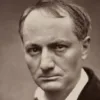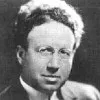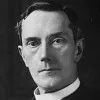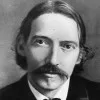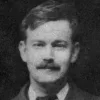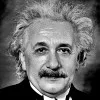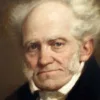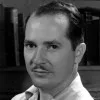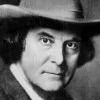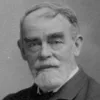He was about to urge her to let well alone and trust heaven to do justice, but then he had a sudden vision of heaven’s justice as the Church sometimes applied it, in good but dreadful faith, with all the virtuous narrowness and pitilessness of minds blind and deaf to the infinite variety of humankind, its failings, and aspirations, and needs, and forgetful of all the Gospel reminders concerning publicans and sinners.
Ellis Peters (1913-1995) English writer, translator [pseud. of Edith Mary Pargeter, who also wrote under the names John Redfern, Jolyon Carr, Peter Benedict]
The Holy Thief, ch. 11 (1992)
(Source)
Quotations about:
church
Note not all quotations have been tagged, so Search may find additional quotes on this topic.
No Church-yard is so handsom, that a man would desire straight to bee buried there.
George Herbert (1593-1633) Welsh priest, orator, poet.
Jacula Prudentum, or Outlandish Proverbs, Sentences, &c. (compiler), # 969 (1640 ed.)
(Source)
The observances of the Church concerning feasts and fasts are tolerably well kept upon the whole, since the rich keep the feasts and the poor the fasts.
Sydney Smith (1771-1845) English clergyman, essayist, wit
(Attributed)
(Source)
In Hesketh Pearson, The Smith of Smiths, ch. 10 (1934).
Being unable to abolish Love, the Church has desired at least to disinfect it, and has invented marriage.
[Ne pouvant supprimer l’amour, l’Église a voulu au moins le désinfecter, et elle a fait le mariage.]
Charles Baudelaire (1821-1867) French poet, essayist, art critic
Journaux Intimes [Intimate Journals], “Mon cœur mis à nu [My Heart Laid Bare],” § 52 (1864–1867; pub. 1887) [tr. Isherwood (1930)]
(Source)
(Source (French)). Alternate translations:Unable to eliminate love, the Church at least wanted to disinfect it -- and hence created marriage.
[tr. Sieburth (2022)]Unable to do away with love, the Church found a way to decontaminate it by creating marriage.
[Source]Unable to suppress love, the Church wanted at least to disinfect it, and it created marriage.
[Source]
It is often said that the Church is a crutch. Of course it’s a crutch. What makes you think you don’t limp?
William Sloane Coffin, Jr. (1924-2006) American minister, social activist
Credo, “The Church” (2004)
(Source)
What we commonly have in our mind when we speak of religion is a definite set of doctrines, of a more or less metaphysical character, formulated in a creed and supported by an organization distinct from the state. And the first thing we have to learn about the religion of the Greeks is that it included nothing of the kind. There was no church, there was no creed, there were no articles. Priests there were, but they were merely public officials, appointed to perform certain religious rites. The distinction between cleric and layman, as we know it, did not exist; the distinction between poetry and dogma did not exist; and whatever the religion of the Greeks may have been, one thing at any rate is clear, that it was something very different from all that we are in the habit of associating with the world.
G. Lowes Dickinson (1862-1932) British political scientist and philosopher [Goldsworthy "Goldie" Lowes Dickinson]
The Greek View of Life, ch. 1 “Religion,” sec. 1 (1911)
(Source)
Ah, Constantine! what mischief in the gift —
Not thy conversion, but the dower you gave
For the first wealthy Father to receive.[Ahi, Costantin, di quanto mal fu matre,
non la tua conversion, ma quella dote
che da te prese il primo ricco patre!]Dante Alighieri (1265-1321) Italian poet
The Divine Comedy [Divina Commedia], Book 1 “Inferno,” Canto 19, l. 115ff (9.115-117) [Dante] (1309) [tr. Bannerman (1850)]
(Source)
According to legend, the Emperor Constantine, having been cured of leprosy through baptism by Pope Sylvester, both showered Sylvester with riches and moved his own capital to Constantinople, leaving the Pope as temporal ruler of the West. This "Donation of Constantine" was fabricated in the 8th century, and first used by Pope Adrian I to encourage Charlemagne to give generously and acknowledge papal power over the emperor. It was largely believed true until the 15th Century. Dante, both author and character, traced the Church's corruption by power and wealth from that legend.
(Source (Italian)). Alternate translations:Ah! Constantine, of how much ill was Cause
Not thy Conversion, but those rich Domains
That the first wealthy Pope received of thee!
[tr. Milton (1641)]Ah, Constantine, what are the many Ills
You have been parent of: I do not mean
By your Conversion, but that pompous Gift
By which our Holy Father you enrich'd!
[tr. Rogers (1782), l. 112ff]Lamented ever be that lib'ral hand,
Whose gifts allur'd the Apostolic band
To leave that humble path where long they trod.
[tr. Boyd (1802), st. 19]Ah, Constantine! to how much ill gave birth,
Not thy conversion, but that plenteous dower,
Which the first wealthy Father gain’d from thee!
[tr. Cary (1814)]Ah, Constantine! what ills have we to rue --
I say not from thine own conversion sprung,
But from thy dower, the first rich father drew!
[tr. Dayman (1843)]Ah Constantine! to how much ill gave birth, not thy conversion, but that dower which the first rich Father took from thee!
[tr. Carlyle (1849)]Oh, Constantine, of how much ill the source!
Not thy conversion, but that fatal dower
Which the first Father took from the in gift!
[tr. Johnston (1867)]Ah, Constantine! of how much ill was mother,
Not thy conversion, but that marriage-dower
Which the first wealthy Father took from thee!
[tr. Longfellow (1867)]Ah, Constantine, of how great ill was mother, not thy conversion, but that dowry which the first rich pope got from thee!
[tr. Butler (1885)]Ah, Constantine, of how much ill was cause,
Not thy conversion but the fatal dower
Which the first wealthy father from thee draws!
[tr. Minchin (1885)]Ah Constantine! of how much ill was mother, not thy conversion, but that dowry which the first rich Father received from thee!
[tr. Norton (1892)]Ah! Constantine, of how great ill was mother,
Not thy conversion, but that fatal dowry,
Which from thy hands received the first rich Father.
[tr. Griffith (1908)]Ah, Constantine, of how much evil gave birth,
not thy conversion, but that dower
the first rich Father had from thee.
[tr. Sinclair (1939)]Ah, Constantine, what evil fruit did bear
Not they conversion, but that dowry broad
Thou on the first rich Father didst confer!
[tr. Binyon (1943)]Ah, Constantine! What ills were gendered there --
No, not from thy conversion, but the dower
The first rich Pope received from thee as heir?
[tr. Sayers (1949)]Ah Constantine, what evil marked the hour --
not of your conversion, but of the fee
the first rich Father took from you in dower!
[tr. Ciardi (1954)]Ah, Constantine, of how much ill was mother, not your conversion, but that dowry which the first rich Father took from you!
[tr. Singleton (1970)]Oh, Constantine, what evil did you sire,
not by your conversion, but by the dower
that the first wealthy Father got from you!
[tr. Musa (1971)]Ah, Constantine, what wickedness was born --
and not from your conversion -- from the dower
that you bestowed upon the first rich father!
[tr. Mandelbaum (1980)]Ah, Constantine, how much ill you produced,
Not by your conversion, but by that endowment
Which the first rich father accepted from you.
[tr. Sisson (1981)]Ah Constantine! What measure of wickedness
Stems from that mother -- not your conversion, I mean:
Rather the dowry that the first rich Father
Accepted from you!
[tr. Pinsky (1994), l. 108ff]Ah, Constantine, not your conversion, but that dowry which the first rich father took from you, has been the mother of so much evil!
[tr. Durling (1996)]Ah, Constantine, how much evil you gave birth to, not in your conversion, but in that Donation that the first wealthy Pope, Sylvester, received from you!
[tr. Kline (2002)]What harm you mothered, Emperor Constantine!
Not your conversion but the dowry he --
that first rich Papa -- thus obtained from you!
[tr. Kirkpatrick (2006)]Ah, Constantine, to what evil you gave birth,
not by your conversion, but by the dowry
that the first rich Father had from you!
[tr. Hollander/Hollander (2007)]Ah, Constantine, the evil thrown in the world
Was not your conversion to Christ, but the wealth and grandeur
The first rich Pope and Father took from your hands!
[tr. Raffel (2010)]Constantine! You set the spurs
To evil, not by cleaving to your new
Religion, but by how, when you moved east,
You gave Sylvester, just to stay behind,
The Western Empire's wealth.
[tr. James (2013)]
And thou hadst seen there,
If thou hadst had a hankering for such scurf,
That one, who by the Servant of the Servants
From Arno was transferred to Bacchiglione,
Where he has left his sin-excited nerves.[E vedervi,
s’avessi avuto di tal tigna brama,
colui potei che dal servo de’ servi
fu trasmutato d’Arno in Bacchiglione,
dove lasciò li mal protesi nervi.]Dante Alighieri (1265-1321) Italian poet
The Divine Comedy [Divina Commedia], Book 1 “Inferno,” Canto 15, l. 110ff (15.110-114) [Brunetto] (1309) [tr. Longfellow (1867)]
(Source)
Referring to Bishop Andrea de'Mozzi, one of the damned in the 7th Circle. In order to cover up de'Mozzi's continuous sexual scandals, Dante's enemy, Pope Boniface VIII (the "Servant of the Servants of God"), shuffled him from the See of Florence to that of Vicenza; he died there a year later.
There's also wordplay here around de'Mozzi's "unnatural vices" hidden in the last line of the Italian: "mal protesti nervi," which can mean "dissolute nerves" -- or, more suggestively, "ill-stretched muscles," or even "wrongly erect penis". Different translators vary as they (or the times) see fit. See Ciardi and Singleton for more commentary.
(Source (Italian)). Alternate translations:And, of such odious sights if fond, you him
May see, who by the Servants Servant was
To that which laves Vicenza's walls transferr'd
From Arno's river where he died contemn'd.
[tr. Rogers (1782), l. 108]He too is there, who late at Rome's request,
Forsook proud Florence for Vicenza's plain.
The living scandal of the hallow'd train,
'Till the kind clay his tainted limbs opprest.
[tr. Boyd (1802), st. 20]And, if the wish of so impure a blotch
Possess’d thee, him thou also might’st have seen,
Who by the servants’ servant was transferr’d
From Arno’s seat to Bacchiglione, where
His ill-strain’d nerves he left.
[tr. Cary (1814)]and, couldst thou crave
So leprous scab to see, was sight allowed
Of him to whom the servants' servant gave
Arno's to change for Bacchiglione's vale,
Wherein his ill-strung sinews found a grave.
[tr. Dayman (1843)]Also, if thou hadst had any longing for such scurf, thou mightest have seen
him there, who by the Servant of servants was translated from Arno to the Bacchiglionne, where he left his ill-strained nerves.
[tr. Carlyle (1849)]Even him you might have see, by servants' servant
From Arno taken to Bacchilion --
Abused, corrupted nerves to leave alone.
[tr. Bannerman (1850)]I could shew
If thou wouldst more of this uncleanness see,
Him by the servant's servant from the banks
Of Arno to Bacchiglione sent,
His foul-stretched members there in death to leave.
[tr. Johnston (1867)]And thou canst also see there, if thou hadst had a desire of such scurf, him who by the servant of servants was translated from Arno to Bacchiglione, where he left his nerves stretched to sin.
[tr. Butler (1885)]Thou might'st see
(If though hadst any whish to see such blame)
Him whom the slave of slaves translated free
From Arno's until Bacchiglione's tide,
Where all his rotten nerves he left in fee.
[tr. Minchin (1885)]And thou mightest also have seen, hadst thou had desire of such scurf, him who by the Servant of Servants was translated from Arno to Bacchiglione, where he left his ill-strained nerves.
[tr. Norton (1892)]And furthermore, thou mightest have looked, if thou hadst any care for suchlike scurf, on him who by the Servant of Servants was translated from the Arno to Bacchiglione, where he left his vice-warped senses.
[tr. Sullivan (1893)]And, if to see such scabs hadst had a craving,
Thou might'st see him who by the servants' servant
From Arno to Bacchilion was translated;
And there he left behind his sin-strained sinew.
[tr. Griffith (1908)]And if thou hast a craving for such scurf, him thou mightest see there that was translated by the Servant of Servants from the Arno to the Bacchiglione, where he left his sin-strained nerves behind.
[tr. Sinclair (1939)]And didst thou crave
Such scurf, thou mightest have seen and spoken to
Him who from Arno to Bacchiglon's wave
By the servant of God's servants was transferred,
And there his sinfully spent nerves outgave.
[tr. Binyon (1943)]Could thy hunger have been sated
By such scabbed meat, thou mightest have seen also
Him whom the Servant of servants once translated
From Arno to Bacchiglione, where he left
The body he'd unstrung and enervated.
[tr. Sayers (1949)]And also there,
if you had any longing for such scum,
you might have seen that one the Servant of Servants
send from the Arnot to the Bacchiglione
where he left his unnatural organ wrapped in cerements.
[tr. Ciardi (1954)]And you could also have seen there, had you hankered for such scurf, him who was transferred by the Servant of Servants form Arno to Bacchiglione, where he left his sinfully displayed muscles.
[tr. Singleton (1970)]And also there,
if you could have stomached such repugnancy,
you might have seen the one the Servant of Servants
transferred to the Bacchiglione from the Arno
where his sinfully-erected nerves were buried.
[tr. Musa (1971)]And among them you can see,
if you have any longing for such scurf,
the one the Servant of His Servants sent
from the Arno to the Bacchiglione's banks,
and there he left his tendons strained by sin.
[tr. Mandelbaum (1980)]And you might have seen,
If you had any taste for such pestilence,
Him who, by the servant of the servants,
Was translated from the Arno to the Bacchiglione,
Where he at last left his ill-stretched nerves.
[tr. Sisson (1981)]And if you crave
To see such scurf, among them you can find
One whom the Servant of Servants asked to leave
The Arno for Bacchiglione; and there
He left his body, distended in its nerve
And muscle.
[tr. Pinsky (1994)]And, if you had desired such scurf, you could see there
him who by the Servant of servants was transmuted from Arno to Bacchiglione, where he left his ill-protended muscles.
[tr. Durling (1996)]And if you had any desire for such scum, you might have seen Andrea di Mozzi there, who by Boniface, the Pope, servus servorum Dei, servant of servants, was translated from the Arno to Vicenza’s Bacchiglione, where he departed from his ill-strained body.
[tr. Kline (2002)]And if you yearn
to set your eyes on such-like mangy scabs,
you could. That bishop there! The Slave of Slaves
transferred him to Vicenza from the Arno.
He left his muscles, ill-distended, there.
[tr. Kirkpatrick (2006)]And, had you had
a hankering for such filth, you might have seen
the one transferred by the Servant of Servants
from the Arno to the Bacchiglione,
where he left his sin-stretched sinews.
[tr. Hollander/Hollander (2007)]And if you longed for
The company of such holy, but scurvy slime,
There's also Andrea de Mozzi, a bishop so strongly
Warped that the Servant of Servants was finally forced
To ship him off to Bacchiglione: he belonged there,
And died, left it his sin-stained body.
[tr. Raffel (2010)]And if you like scum you might see the man
Sent to Vicenza by the Pope, before
Florence should see his sin-worn nerves collapse:
Andrea de'Mozzi. Bishop, in your youth.
[tr. James (2013), l. 111ff]
Although I never found a church where I felt completely at home again, I made a new home in the world. I renewed my membership in the priesthood of all believers, who may not have as much power as we would like, but whose consolation prize is the freedom to meet God after work, well away from all centers of religious command, wherever God shows up.
Barbara Brown Taylor (b. 1951) American minister, academic, author
Leaving Church: A Memoir of Faith, Part 2 (2006)
(Source)
But, oh, how little they know, the omniscient seers.
What good are prayers and shrines to a person mad with love?
The flame keeps gnawing into her tender marrow hour by hour
and deep in her heart the silent wound lives on.
Dido burns with love — the tragic queen.[Heu vatum ignarae mentes! quid vota furentem,
quid delubra iuvant? Est mollis flamma medullas
interea, et tacitum vivit sub pectore volnus.
Uritur infelix Dido ….]Virgil (70-19 BC) Roman poet [b. Publius Vergilius Maro; also Vergil]
The Aeneid [Ænē̆is], Book 4, l. 65ff (4.65-68) (29-19 BC) [tr. Fagles (2006), l. 82ff]
(Source)
Of lovesick Dido.
(Source (Latin)). Alternate translations:Ah ignorant Priests, what availes temples, pray'r,
To ease th'inrag'd! whilst soft fire wastes her veins,
And in her breast, a silent wound remaines.
Unhappy Dido burnes ....
[tr. Ogilby (1649)]What priestly rites, alas! what pious art,
What vows avail to cure a bleeding heart!
A gentle fire she feeds within her veins,
Where the soft god secure in silence reigns.
[tr. Dryden (1697)]Alas, how ignorant the minds of seers! what can prayers, what can temples, avail a raging lover? The gentle flame preys all the while upon her vitals and the secret wound rankles in her breast. Unhappy dido burns ....
[tr. Davidson/Buckley (1854)]Alas! but seers are blind to day:
Can vows, can sacrifice allay
A frantic lover's smart?
The very marrow of her frame
Is turning all the while to flame,
The wound is at her heart.
Unhappy Dido! all ablaze ....
[tr. Conington (1866)]Alas, the ignorance
Of all prophetic lore! What vows, what shrines
Can help her raging love? The soft flame burns,
Meanwhile, the marrow of her life; the wound
Lives silently, and rankles 'neath her breast.
The unhappy Dido [...] with burning bosom ....
[tr. Cranch (1872), l. 85ff]Ah, witless souls of soothsayers! how may vows or shrines help her madness? all the while the subtle flame consumes her inly, and deep in her breast the wound is silent and alive.
[tr. Mackail (1885)]Woe's me! the idle mind of priests! what prayer, what shrine avails
The wild with love!—and all the while the smooth flame never fails
To eat her heart: the silent wound lives on within her breast:
Unhappy Dido burneth up ....
[tr. Morris (1900), l. 65ff]Blind seers, alas! what art
To calm her frenzy, now hath vow or shrine?
Deep in her marrow feeds the tender smart,
Unseen, the silent wound is festering in her heart.
Poor Dido burns ....
[tr. Taylor (1907), st. 9-10; l. 71ff]How blind the hearts of prophets be! Alas!
Of what avail be temples and fond prayers
to change a frenzied mind? Devouring ever,
love's fire burns inward to her bones; she feels
quick in her breast the viewless, voiceless wound.
[tr. Williams (1910)]Ah, blind souls of seers! Of what avail are vows or shrines to one wild with love? All the while the flame devours her tender heart-strings, and deep in her breast lives the silent wound. Unhappy Dido burns ....
[tr. Fairclough (1916)]Alas, poor blind interpreters! What woman
In love is helped by offerings or altars?
Soft fire consumes the marrow-bones, the silent
Wound grows, deep in the heart.
Unhappy Dido burns ....
[tr. Humphries (1951)]Ah, little the soothsayers know! What value have vows or shrines
For a woman wild with passion, the while love's flame eats into
Her gentle flesh and love's wound works silently in her breast?
So burns the ill-starred Dido ....
[tr. Day Lewis (1952)]But oh the ignorance of the augurs! How
can vows and altars help one wild with love?
Meanwhile the supple flame devours her marrow;
within her breast the silent wound lives on.
Unhappy Dido burns ....
[tr. Mandelbaum (1971), l. 86ff]Alas, what darkened minds have soothsayers!
What good are shrines and vows to maddened lovers?
The inward fire eats the soft marrow away,
And the internal wound bleeds on in silence.
Unlucky Dido, burning ...
[tr. Fitzgerald (1981), l. 91ff]But priests, as we know, are ignorant. What use are prayers and shrines to a passionate woman? The flame was eating the soft marrow of her bones and the wound lived quietly under her breast. Dido was on fire with love ....
[tr. West (1990)]Ah, the unknowing minds of seers! What use are prayers
or shrines to the impassioned? Meanwhile her tender marrow
is aflame, and a silent wound is alive in her breast.
Wretched Dido burns ....
[tr. Kline (2002)]But what do prophets know? How much can vows,
Or shrines, help a raging heart? Meanwhile the flame
Eats her soft marrow, and the wound lives,
Silent beneath her breast. Dido is burning.
[tr. Lombardo (2005)]But what can prophets know? What use are vows
and shrines to the obsessed? The flame devoured her soft marrow;
the silent wound throbbed in her heart.
Unhappy Dido burned.
[tr. Bartsch (2021)]
The Church of the Interdependency and other religions found their places of worship jammed, as the faithful, the newly faithful and the not-actually-at-all-faithful-but-this-is-some-weird-shit-and-I’m-hedging-my-bets came in and, depending on experience, prayed, meditated or wondered what it was exactly they were supposed to do now that they were there.
When will the churches learn that intolerance, personal or ecclesiastical, is an evidence of weakness? The confident can afford to be calm and kindly; only the fearful must defame and exclude.
Harry Emerson Fosdick (1878-1969) American clergyman, author, teacher
“Tolerance,” sec. 3, Adventurous Religion (1926)
(Source)
I can consequently assure you that no kingdom has ever existed with as many civil wars as occur in the kingdom of Christ.
[Aussi puis-je t’assurer qu’il n’y a jamais eu de royaume où il y ait eu tant de guerres civiles que dans celui de Christ.]Charles-Lewis de Secondat, Baron de Montesquieu (1689-1755) French political philosopher
Persian Letters [Lettres Persanes], Letter 29, Rica to Ibben (1721) [tr. Mauldon (2008)]
(Source)
(Source (French)). Alternate translations:And accordingly I can assure thee there never was a Kingdom that had so many Civil Wars in it, as that of Christ.
[tr. Ozell (1736), Letter 27]I can also affirm to thee that there never was a kingdom where there has been so many civil wars as in that of Christ.
[tr. Floyd (1762)]I can also assure you that there never was a realm in which so many civil wars have broken out, as in the kingdom of Christ.
[tr. Davidson (1891)]Consequently, I am able to assure you that there never has been a kingdom in which there have been so many civil wars as in that of Christ.
[tr. Betts (1897)]I can also assure you that there has never been a realm so prone to civil wars as that of Christ.
[tr. Healy (1964)]I assure you that no countries have had as many civil wars as those in the realm of Christ.
[tr. MacKenzie (2014)]
It can be difficult to be an introvert in church, especially if you happen to be the pastor. Liking to be alone can be interpreted as a judgment on other people’s company. Liking to be quiet can be construed as aloofness. There is so much emphasis on community in most congregations that anyone who does not participate risks being labeled a loner.
Barbara Brown Taylor (b. 1951) American minister, academic, author
An Altar in the World, ch. 7 (2009)
(Source)
All these years later, the way many of us are doing church is broken and we know it, even if we do not know what to do about it. We proclaim the priesthood of all believers while we continue with hierarchical clergy, liturgy, and architecture. We follow a Lord who challenged the religious and political institutions of his time while we fund and defend our own. We speak and sing of divine transformation while we do everything in our power to maintain our equilibrium. If redeeming things continue to happen to us in spite of these deep contradictions in our life together, then I think that is because God is faithful even when we are not.
Preacher preaching love like vengeance
Preaching love like hate
Calling for large donations
Promising estates
Rolling lawns and angel bands
Behind the pearly gates
You know he will have his in this life
But yours will have to wait
He’s immaculately tax freeJoni Mitchell (b. 1943) Canadian singer-songwriter and painter [b. Roberta Joan Anderson]
“Tax Free” Joni Mitchell (1985)
(Source)
I have no objection to churches so long as they do not interfere with God’s work.
Brooks Atkinson (1894-1984) American drama critic and journalist
Once Around the Sun, “November 10” (1951)
(Source)
The liberty of man is not safe in the hands of any church. Wherever the Bible and sword are in partnership, man is a slave.
Robert Green Ingersoll (1833-1899) American lawyer, agnostic, orator
Some Mistakes of Moses, ch. 3 “The Politicians” (1879)
(Source)
What if people were invited to come tell what they already know of God instead of to learn what they are supposed to believe? What if they were blessed for what they are doing in the world instead of chastened for not doing more at church? What if church felt more like a way station than a destination? What if the church’s job were to move people out the door instead of trying to keep them in, by convincing them that God needed them more in the world than in the church?
Barbara Brown Taylor (b. 1951) American minister, academic, author
Leaving Church: A Memoir of Faith, Part 3 (2006)
(Source)
The Catholic Church is an institution I am bound to hold divine — but for unbelievers a proof of its divinity might be found in the fact that no merely human institution conducted with such knavish imbecility would have lasted a fortnight.
Hilaire Belloc (1870-1953) Franco-British writer, historian [Joseph Hilaire Pierre René Belloc]
Remark to William Temple
(Source)
Quoted in Robert Speaight, The Life of Hilaire Belloc (1957). Variant: "The Catholic Church is an institution I am bound to hold divine, but for unbelievers, here is proof of its divinity, that no merely human institution run with such knavish imbecility would have lasted a fortnight."
The church has stood, a rock colossus of bigotry, in the path of ten thousand proposed reforms. Sane efforts to legalize birth control information, the manufacture of proper birth control appliances, appliances for the inhibition of the spread of venereal disease, public instruction in sex hygiene, free clinics for the treatment of venereal disease, the inspection and treatment of prostitutes, controlled prostitution itself, the publication of psychological and physical sex information, aid for unwed mothers –myriad attempts by sane men acting sanely on real problems -— have been fought down by church-frightened legislatures and church-dominated courts.
Christ by his crucifixion demonstrated exactly what the assault of cruelty on the innocent means; and the subsequent services devised by the early church commemorated the beauty of the virtue that was slain and the beastliness shown by the slayer, and reiterated the warning that this was the kind of crime man was inherently likely to commit unless he watched himself. There could be no more proper medicine for the human disease. But the church has poured as much of the draft as possible down the drain by its attempts to account for the crucifixion of Christ as an atonement for the sins of man instead of a demonstration of them.
Rebecca West (1892-1983) British author, journalist, literary critic, travel writer [pseud. for Cicily Isabel Fairfield]
“Pleasure Be Your Guide,” The Nation, “Living Philosophies” series #10 (25 Feb 1939)
(Source)
Adapted into Clifton Fadiman, I Believe: The Personal Philosophies of Certain Eminent Men and Women of Our Time (1952).
It is difficult to pronounce on the opinion of the ministers of our Church as a body: one portion of them, by far the least informed, protests against anything which can advance the honour and the interests of science, because, in their limited and mistaken view, science is adverse to religion. This is not the place to argue that great question. It is sufficient to remark, that the best-informed and most enlightened men of all creeds and pursuits, agree that truth can never damage truth, and that every truth is allied indissolubly by chains more or less circuitous with all other truths; whilst error, at every step we make in its diffusion, becomes not only wider apart and more discordant from all truths, but has also the additional chance of destruction from all rival errors.
Charles Babbage (1791-1871) English mathematician, computer pioneer, philosopher
The Exposition of 1851: Views Of The Industry, The Science, and the Government Of England, ch. 17 (1851)
(Source)
But when you frequent places of public worship, as I would have you go to all the different ones you meet with, remember that, however erroneous, they are none of them objects of laughter and ridicule. Honest error is to be pitied, not ridiculed. The object of all the public worships in the world is the same; it is that great eternal Being who created everything. The different manners of worship are by no means subjects of ridicule. Each sect thinks its own the best; and I know no infallible judge, in this world, to decide which is the best.
Lord Chesterfield (1694-1773) English statesman, wit [Philip Dormer Stanhope]
Letter to his son, #141 (16 Feb 1748)
(Source)
Nothing so outrages the feelings of the church as a moral unbeliever — nothing so horrible as a charitable Atheist.
The worship of God is a Duty; the hearing and reading of Sermons may be useful; but, if Men rest in Hearing and Praying, as too many do, it is as if a Tree should Value itself on being water’d and putting forth Leaves, tho’ it never produc’d any Fruit.
Benjamin Franklin (1706-1790) American statesman, scientist, philosopher, aphorist
Letter to Joseph Huey (6 Jun 1753)
(Source)
The Faith you mention has doubtless its use in the World. I do not desire to see it diminished, nor would I endeavour to lessen it in any Man. But I wish it were more productive of good Works, than I have generally seen it: I mean real good Works, Works of Kindness, Charity, Mercy, and Publick Spirit; not Holiday-keeping, Sermon-Reading or Hearing; performing Church Ceremonies, or making long Prayers, filled with Flatteries and Compliments, despis’d even by wise Men, and much less capable of pleasing the Deity.
Benjamin Franklin (1706-1790) American statesman, scientist, philosopher, aphorist
Letter to Joseph Huey (6 Jun 1753)
(Source)
In the most deeply significant of the legends concerning Jesus, we are told how the devil took him up into a high mountain and showed him all the kingdoms of the world in a moment of time; and the devil said unto him: “All this power will I give unto thee, and the glory of them, for that is delivered unto me, and to whomsoever I will, I give it. If thou, therefore, wilt worship me, all shall be thine.” Jesus, as we know, answered and said “Get thee behind me, Satan!” And he really meant it; he would have nothing to do with worldly glory, with “temporal power;” he chose the career of a revolutionary agitator, and died the death of a disturber of the peace. And for two or three centuries his church followed in his footsteps, cherishing his proletarian gospel. The early Christians had “all things in common, except women;” they lived as social outcasts, hiding in deserted catacombs, and being thrown to lions and boiled in oil.
But the devil is a subtle worm; he does not give up at one defeat, for he knows human nature, and the strength of the forces which battle for him. He failed to get Jesus, but he came again, to get Jesus’ church. He came when, through the power of the new revolutionary idea, the Church had won a position of tremendous power in the decaying Roman Empire; and the subtle worm assumed the guise of no less a person than the Emperor himself, suggesting that he should become a convert to the new faith, so that the Church and he might work together for the greater glory of God. The bishops and fathers of the Church, ambitious for their organization, fell for this scheme, and Satan went off laughing to himself. He had got everything he had asked from Jesus three hundred years before; he had got the world’s greatest religion.
Upton Sinclair (1878-1968) American writer, journalist, activist, politician
The Profits of Religion, Book Seven “The Church of the Social Revolution” (1917)
(Source)
The supreme crime of the church to-day is that everywhere and in all its operations and influences it is on the side of sloth of mind; that it banishes brains, it sanctifies stupidity, it canonizes incompetence.
Upton Sinclair (1878-1968) American writer, journalist, activist, politician
The Profits of Religion, Book Two: “The Church of Good Society,” “The Canonization of Incompetence” (1917)
(Source)
The philosophical historian must admit that all the changes which the Catholic Church has undergone — its concessions to Pagan superstition, its secular power, its ruthless extirpation of rebels against its authority, its steadily growing centralisation and autocracy — were forced upon it in the struggle for existence. Those who wish that Church history had been different are wishing the impossible, or wishing that the Church had perished. But this argument is not valid as a defence of a divine institution. It is rather a merciless exposure of what happens, and must happen, to a great idea when it is enslaved by an institution of its own creation. The political organisation which has grown up round the idea ends by strangling it, and continues to fight for its own preservation by the methods which govern the policy of all other political organisations –force, fraud, and accommodation.
William Ralph Inge (1860-1954) English prelate [Dean Inge]
“Institutionalism and Mysticism” (1914), Outspoken Essays: First Series (1914)
(Source)
Certainly, if I am obliged to bring religion in to after-dinner toasts, (which indeed does not seem quite the thing) I shall drink — to the Pope, if you please, — still, to Conscience first, and to the Pope afterwards.
John Henry Newman (1801-1890) English prelate, Catholic Cardinal, theologian
Reply to Mr. Gladstone’s Pamphlet [Letter to the Duke of Norfolk], sec. 5 “Conscience” (1875)
(Source)
My personal disillusionment with the church began when I was thrust into the leadership of the bus protest in Montgomery. I was confident that the white ministers, priests and rabbis of the South would prove strong allies in our just cause. But some became open adversaries, some cautiously shrank from the issue, and others hid behind silence. My optimism about help from the white church was shattered; and on too many occasions since, my hopes for the white church have been dashed. There are many signs that the judgment of God is upon the church as never before. Unless the early sacrificial spirit is recaptured, I am very much afraid that today’s Christian church will lose its authenticity, forfeit the loyalty of millions, and we will see the Christian church dismissed as a social club with no meaning or effectiveness for our time, as a form without substance, as salt without savor. The real tragedy, though, is not Martin Luther King’s disillusionment with the church — for I am sustained by its spiritual blessings as a minister of the gospel with a lifelong commitment: The tragedy is that in my travels, I meet young people of all races whose disenchantment with the church has soured into outright disgust.
Martin Luther King, Jr. (1929-1968) American clergyman, civil rights leader, social activist, preacher
Playboy interview (Jan 1965)
(Source)
The essence of the Epistles of Paul is that Christians should rejoice at being deemed worthy to suffer for what they believe. The projection of a social gospel, in my opinion, is the true witness of a Christian life. This is the meaning of the true ekklesia — the inner, spiritual church. The church once changed society. It was then a thermostat of society. But today I feel that too much of the church is merely a thermometer, which measures rather than molds popular opinion.
Martin Luther King, Jr. (1929-1968) American clergyman, civil rights leader, social activist, preacher
Playboy interview (Jan 1965)
(Source)
There are many signs that the judgment of God is upon the church as never before. Unless the early sacrificial spirit is recaptured, I am very much afraid that today’s Christian church will lose its authenticity, forfeit the loyalty of millions, and we will see the Christian church dismissed as a social club with no meaning or effectiveness for our time, as a form without substance, as salt without savor. The real tragedy, though, is not Martin Luther King’s disillusionment with the church — for I am sustained by its spiritual blessings as a minister of the gospel with a lifelong commitment. The tragedy is that in my travels, I meet young people of all races whose disenchantment with the church has soured into outright disgust.
Martin Luther King, Jr. (1929-1968) American clergyman, civil rights leader, social activist, preacher
Playboy interview (Jan 1965)
(Source)
There are three possible ways in which the church can act toward the state: in the first place, as has been said, it can ask the state whether its actions are legitimate and in accordance with its character as state, i.e., it can throw the state back on its responsibilities. Secondly, it can aid the victims of state action. The church has an unconditional obligation to the victims of any ordering society, even if they do not belong to the Christian community. “Do good to all men.” In both these course of action, the church serves the free state in its free way, and at times when laws are changed the church may in no way withdraw itself from these two tasks.
The third possibility is not just to bandage the victims under the wheel, but to put a spoke in the wheel itself. Such action would be direct political action, and is only possible and required when the church sees the state fail in its function of creating law and order, i.e., when it sees the state unrestrainedly bring about too much or too little law and order.
Dietrich Bonhoeffer (1906-1945) German Lutheran pastor, theologian, martyr
“The Church and the Jewish Question” (1933)
(Source)
On the need for Christian clergy to actively oppose the Nazi regime's persecution of Jews.
Depend upon it, as long as the church is living so much like the world, we cannot expect our children to be brought into the fold.
Dwight Lyman "D. L." Moody (1837-1899) American evangelist and publisher
God’s Good News, “Where Art Thou?” [Gen. 3:9] (1897)
(Source)
I find I never weary of great churches. It is my favorite kind of mountain scenery. Mankind was never so happily inspired as when it made a cathedral: a thing as single and specious as a statue at first glance, and yet, on examination, as lively and interesting as a forest in detail.
Robert Louis Stevenson (1850-1894) Scottish essayist, novelist, poet
An Inland Voyage, “Noyon Cathedral” (1878)
(Source)
[Dr. John] Campbell is a good man, a pious man. I am afraid he has not been in the inside of a church for many years; but he never passes a church without
pulling off his hat. This shews that he has good principles.
“Which of them shall be accounted greatest?” Let the churches stop trying to outstrip each other in the number of their adherents, the size of its sanctuary, the abundance of wealth. If we must compete let us compete to see which can move toward the greatest attainment of truth, the greatest service of the poor, and the greatest salvation of the soul and bodies of men. If the Church entered this kind of competition we can imagine what a better world this would be.
Martin Luther King, Jr. (1929-1968) American clergyman, civil rights leader, social activist, preacher
“Cooperative Competition / Noble Competition,” sermon outline
(Source)
The conception of men as united to each other, and of all mankind as united to God, by mutual obligations arising from their relation to a common end, which vaguely conceived and imperfectly realized, had been the keystone holding together the social fabric, ceased to be impressed upon men’s minds, when Church and State withdrew from the centre of social life to its circumference. What remained … was private rights and private interests, the materials of a society rather than a society itself.
Being a lover of freedom, when the revolution came in Germany, I looked to the universities to defend it, knowing that they had always boasted of their devotion to the cause of truth; but, no, the universities immediately were silenced. Then I looked to the great editors of the newspapers whose flaming editorials in days gone by had proclaimed their love of freedom; but they, like the universities, were silenced in a few short weeks. Then I looked to individual writers who, as literary guides of Germany, had written much and often concerning the place of freedom in modern life; but they, too, were mute.
Only the church stood squarely across the path of Hitler’s campaign for suppressing truth. I never had any special interest in the church before, but now I feel a great affection and admiration because the church alone has had the courage and persistence to stand for intellectual truth and moral freedom. I am forced thus to confess that what I once despised I now praise unreservedly.
Albert Einstein (1879-1955) German-American physicist
(Disputed)
Regarding the rise of the Nazi party in Germany. Originally attributed in S. Parkes Cadman, "The Conflict Between Church And State In The Third Reich," La Crosse Tribune and Leader-Press (28 Oct 1934), noted as a "free translation" made by a colleague of the writer. Made famous in being quoted in Time (23 Dec 1940). Einstein himself said that he'd said something like this to a journalist, noting that the only German intellectuals supporting individual rights and intellectual freedom in the early Nazi regime were a few churchmen. He later suggested that his words on the matter had been significantly exaggerated, and issued much more critical statements about how the Catholic Church, in particular, had been silent or collaborated with the Nazi regime.More discussion here and here.
But if at the Church they would give us some ale,
And a pleasant fire, our souls to regale,
We’d sing and we’d pray all the live-long day,
Nor ever once wish from the Church to stray.
… And God like a father rejoicing to see
His children as pleasant and happy as he,
Would have no more quarrel with the Devil or the barrel,
But kiss him and give him both drink and apparel.
Same sex marriage isn’t gay privilege, it’s equal rights. Privilege would be something like gay people not paying taxes. Like churches don’t.
Let us have wine and women, mirth and laughter,
Sermons and soda water the day after.
The Church does not superstitiously observe days, merely as days, but as memorials of important facts. Christmas might be kept as well upon one day of the year as another; but there should be a stated day for commemorating the birth of our Savior, because there is danger that what may be done on any day, will be neglected.
Samuel Johnson (1709-1784) English writer, lexicographer, critic
Comment (22 Mar 1767)
(Source)
In James Boswell, The Life of Samuel Johnson (1791)
This is the whole of Christianity. There is nothing else. It is so easy to get muddled about that. It is easy to think that the Church has a lot of different objects — education, building, missions, holding services. Just as it is easy to think the State has a lot of different objects — military, political, economic, and what not. But in a way things are much simpler than that. The State exists simply to promote and to protect the ordinary happiness of human beings in this life. A husband and wife chatting over a fire, a couple of friends having a game of darts in a pub, a man reading a book in his own room or digging in his own garden — that is what the State is there for. And unless they are helping to increase and prolong and protect such moments, all the laws, parliaments, armies, courts, police, economics, etc., are simply a waste of time. In the same way the Church exists for nothing else but to draw men into Christ, to make them little Christs. If they are not doing that, all the cathedrals, clergy, missions, sermons, even the Bible itself, are simply a waste of time. God became Man for no other purpose. It is even doubtful, you know, whether the whole universe was created for any other purpose.
C. S. Lewis (1898-1963) English writer, literary scholar, lay theologian [Clive Staples Lewis]
Mere Christianity, ch. 8 (1952)
(Source)
Religion that seeks to be no more than a time capsule is likely to be claustrophobic.
Abdal Hakim Murad (b. 1960) British Muslim shaykh, researcher, writer, academic [b. Timothy John Winter]
“Contentions 2,” # 8
(Source)
I don’t have anything against God. Far from it. But I don’t understand Him. And I don’t trust a lot of the people that go around claiming that they’re working in His best interests.
A religion without mystics is a philosophy.
Francis I (b. 1936) Argentinian Catholic Pope (2013- ) [b. Jorge Mario Bergoglio]
“How the Church Will Change,” interview with Eugenio Scalfari, La Repubblica (1 Oct 2013) [tr. K Wallace]
(Source)
I believe I have already said that our goal is not to proselytize but to listen to needs, desires and disappointments, despair, hope. We must restore hope to young people, help the old, be open to the future, spread love. Be poor among the poor. We need to include the excluded and preach peace.
Francis I (b. 1936) Argentinian Catholic Pope (2013- ) [b. Jorge Mario Bergoglio]
“How the Church Will Change,” interview with Eugenio Scalfari, La Repubblica (1 Oct 2013) [tr. K Wallace]
(Source)
It also happens to me that when I meet a clericalist, I suddenly become anti-clerical. Clericalism should not have anything to do with Christianity. St. Paul, who was the first to speak to the Gentiles, the pagans, to believers in other religions, was the first to teach us that.
Francis I (b. 1936) Argentinian Catholic Pope (2013- ) [b. Jorge Mario Bergoglio]
“How the Church Will Change,” interview with Eugenio Scalfari, La Repubblica (1 Oct 2013) [tr. K Wallace]
(Source)
Heads of the Church have often been narcissists, flattered and thrilled by their courtiers. The court is the leprosy of the papacy.
Francis I (b. 1936) Argentinian Catholic Pope (2013- ) [b. Jorge Mario Bergoglio]
“How the Church Will Change,” interview with Eugenio Scalfari, La Repubblica (1 Oct 2013) [tr. K Wallace]
(Source)
The promise was that when the glass was full, it would overflow, benefiting the poor. But what happens instead, is that when the glass is full, it magically gets bigger: nothing ever comes out for the poor.
Francis I (b. 1936) Argentinian Catholic Pope (2013- ) [b. Jorge Mario Bergoglio]
In “Pope Francis: I’m Not a Marxist,” TIME (15 Dec 2013)
(Source)
On the "trickle-down" theory.
Of course it is quite a different matter if we consider the utility of religion as a prop of thrones; for where these are held “by the grace of God,” throne and altar are intimately associated; and every wise prince who loves his throne and his family will appear at the head of his people as an exemplar of true religion.
[Anders freilich stellt sich die Sache, wenn wir den Nutzen der Religionen als Stützen der Throne in Erwägung ziehen: denn sofern diese von Gottes Gnaden verliehen sind, stehn Altar und Thron in genauer Verwandtschaft. Auch wird demnach jeder weise Fürst, der seinen Thron und seine Familie liebt, stets als ein Muster wahrer Religiosität seinem Volke vorangehn.]
Arthur Schopenhauer (1788-1860) German philosopher
Parerga and Paralipomena, Vol. 2, ch. 15 “On Religion [Ueber Religion],” § 174 “A Dialogue [Ein Dialog]” (1851) [tr. Saunders (1890)]
(Source)
(Source (German)). Alternate translation:Of course the matter becomes quite different if we consider the utility of religion as a mainstay of thrones; for in so far as these are bestowed "by the grace of God," altar and throne are closely related. Accordingly, every wise prince who loves his throne and his family will walk before his people as a type of true religion.
[tr. Dircks]Of course, it is quite a different matter if we take into consideration the use of religions as supports to thrones; for in so far as these are granted by the grace of God, throne and altar are intimately associated. Accordingly, every wise prince who loves his throne and family, will always appear at the head of his people as a paragon of true religious feeling.
[tr. Payne (1974)]
The churches used to win their arguments against atheism, agnosticism, and other burning issues by burning the ism-ists, which is fine proof that there is a devil but hardly evidence that there is a God.
Apart from moral conduct, all that man thinks himself able to do in order to become acceptable to God is mere superstition and religious folly. If once a man has come to the idea of a service which is not purely moral, but is supposed to be agreeable to God himself, or capable of propitiating him, there is little difference between the several ways of serving him. For all these ways are of equal value. … Whether the devotee accomplishes his statutory walk to the church, or whether he undertakes a pilgrimage to the sanctuaries of Loretto and Palestine, whether he repeats his prayer-formulas with his lips, or like the Tibetan, uses a prayer-wheel … is quite indifferent. As the illusion of thinking that a man can justify himself before God in any way by acts of worship is religious superstition, so the illusion that he can obtain this justification by the so-called intercourse with God is religious mysticism. Such superstition leads inevitably to sacerdotalism which will always be found where the essence is sought not in principles of morality, but in statutory commandments, rules of faith and observances
As everybody likes to be honoured, so people imagine that God also wants to be honoured. They forget that the fulfillment of duty towards men is the only honour adequate to him. Thus is formed the conception of a religion of worship, supposed to be agreeable to God himself, and capable of propitiating him, instead of a merely moral religion.
Immanuel Kant (1724-1804) German philosopher
Quoted in Karl Hillebrand, Lectures on German Thought, Lecture 5 “The Triumvirate of Goethe, Kant, and Schiller (1787-1800)” (1879)
(Source)
The most preposterous notion that H. sapiens has ever dreamed up is that the Lord God of Creation, Shaper and Ruler of all the Universes, wants the saccharine adoration of His creatures, can be swayed by their prayers, and becomes petulant if He does not receive their flattery. Yet this absurd fantasy, without a shred of evidence to bolster it, pays all the expenses of the oldest, largest, and least productive industry in all history.
Most Mens Anger about Religion is as if two Men should quarrel for a Lady they neither of them care for.
George Savile, Marquis of Halifax (1633-1695) English politician and essayist
“Religion,” Political, Moral, and Miscellaneous Thoughts and Reflections (1750)
(Source)
The doctrines of Jesus are simple, and tend all to the happiness of man.
- That there is one only God, and he is all perfect.
- That there is a future state of rewards and punishments.
- That to love God with all thy heart and thy neighbor as thyself is the sum of religion.
These are the great points on which he endeavored to reform the religion of the Jews. But compare with these the demoralizing dogmas of Calvin.
- That there are three Gods.
- That good works, or the love of our neighbor, are nothing.
- That faith is every thing, and the more incomprehensible the proposition, the more merit in its faith.
- That reason in religion is of unlawful use.
- That God, from the beginning, elected certain individuals to be saved, and certain others to be damned; and that no crimes of the former can damn them; no virtues of the latter save.
Now, which of these is the true and charitable Christian? He who believes and acts on the simple doctrines of Jesus? Or the impious dogmatists as Athanasius and Calvin? Verily I say these are the false shepherds foretold as to enter not by the door into the sheepfold, but to climb up some other way. They are mere usurpers of the Christian name, teaching a counter-religion made up of the deliria of crazy imaginations, as foreign from Christianity as is that of Mahomet.
Thomas Jefferson (1743-1826) American political philosopher, polymath, statesman, US President (1801-09)
Letter (1822-06-26) to Benjamin Waterhouse
(Source)
My opinion is that there would never have been an infidel, if there had never been a priest. The artificial structures they have built on the purest of all moral systems, for the purpose of deriving from it pence and power, revolts those who think for themselves, and who read in that system only what is really there.
The neer to the church, the further from God.
John Heywood (1497?-1580?) English playwright and epigrammist
Proverbes, Part 1, ch. 9 (1546)
(Source)
Fear: A club used by priests, presidents, kings and policemen to keep the people from recovering stolen goods.
Elbert Hubbard (1856-1915) American writer, businessman, philosopher
The Roycroft Dictionary (1914)
(Source)
In this country the Episcopalians have done some good, and I want to thank that church. Having on an average less religion than the others — on an average you have done more good to mankind. You preserved some of the humanities. You did not hate music; you did not absolutely despise painting, and you did not altogether abhor architecture, and you finally admitted that it was no worse to keep time with your feet than with your hands. And some went so far as to say that people could play cards, and that God would overlook it, or would look the other way. For all these things accept my thanks.
Robert Green Ingersoll (1833-1899) American lawyer, agnostic, orator
“What Must We Do to Be Saved?” Sec. 7 (1880)
(Source)
Yes, I see the church as the body of Christ. But, oh! How we have blemished and scarred that body through social neglect and through fear of being nonconformists.
Martin Luther King, Jr. (1929-1968) American clergyman, civil rights leader, social activist, preacher
Letter from Birmingham Jail (16 Apr 1963)
(Source)
And his hands would plait the priest’s entrails,
For want of a rope, to strangle kings.[Et ses mains ourdiraient les entrailles du prêtre,
Au défaut d’un cordon pour étrangler les rois.]Denis Diderot (1713-1784) French editor, philosopher
Poésies Diverses, “Les Éleuthéromanes” (1875)
Alt. trans. "His hands would plait the priest’s guts, if he had no rope, to strangle kings."
Derived from a statement attributed (but not confirmed) to Jean Meslier: "I would like — and this would be the last and most ardent of my wishes — I would like the last of the kings to be strangled by the guts of the last priest."
Variant: "Let us strangle the last king with the guts of the last priest."
[Et des boyaux du dernier prêtre / Serrons le cou du dernier roi.]
This version was attributed to Diderot in Jean-François de La Harpe, Cours de Littérature Ancienne et Moderne (1840)
Sometimes paraphrased as, ""Men will never be free until the last king is strangled with the entrails of the last priest," etc.
It is far more important to love your wife than to love God, and I will tell you why. You cannot help him, but you can help her. You can fill her life with the perfume of perpetual joy. It is far more important that you love your children than that you love Jesus Christ. And why? If he is God you cannot help him, but you can plant a little flower of happiness in every footstep of the child, from the cradle until you die in that child’s arms. Let me tell you to-day it is far more important to build a home than to erect a church. The holiest temple beneath the stars is a home that love has built. And the holiest altar in all the wide world is the fireside around which gather father and mother and the sweet babes.
A glorious Church is like a magnificent feast; there is all the variety that may be, but every one chooses out a dish or two that he likes, and lets the rest alone: how glorious soever the Church is, every one chooses out of it his own religion, by which he governs himself, and lets the rest alone.
John Selden (1584-1654) English jurist, legal scholar, antiquarian, polymath
Table Talk, § 16.3 “Church” (1689)
(Source)
No orthodox church ever had power that it did not endeavor to make people think its way by force and flame.
Robert Green Ingersoll (1833-1899) American lawyer, agnostic, orator
Trial of C.B. Reynolds for blasphemy (May 1887)
(Source)
Formerly there were those who said: You believe things that are incomprehensible, inconsistent, impossible because we have commanded you to believe them; go then and do what is unjust because we command it. Such people show admirable reasoning. Truly, whoever is able to make you absurd is able to make you unjust. If the God-given understanding of your mind does not resist a demand to believe what is impossible, then you will not resist a demand to do wrong to that God-given sense of justice in your heart. As soon as one faculty of your soul has been dominated, other faculties will follow as well. And from this derives all those crimes of religion which have overrun the world.
[Il y a eu des gens qui ont dit autrefois: Vous croyez des choses incompréhensibles, contradictoires, impossibles, parce que nous vous l’avons ordonné; faites donc des choses injustes parce que nous vous l’ordonnons. Ces gens-là raisonnaient à merveille. Certainement qui est en droit de vous rendre absurde est en droit de vous rendre injuste. Si vous n’opposez point aux ordres de croire l’impossible l’intelligence que Dieu a mise dans votre esprit, vous ne devez point opposer aux ordres de malfaire la justice que Dieu a mise dans votre coeur. Une faculté de votre âme étant une fois tyrannisée, toutes les autres facultés doivent l’être également. Et c’est là ce qui a produit tous les crimes religieux dont la terre a été inondée.]
Voltaire (1694-1778) French writer [pseud. of Francois-Marie Arouet]
Questions sur les miracles (1765)
(Source)
Commonly translated: "Those who can make you believe absurdities can make you commit atrocities."
How has the church in every age, when in authority, defended itself? Always by a statute against blasphemy, against argument, against free speech. And there never was such a statute that did not stain the book that it was in and that did not certify to the savagery of the men who passed it.
Robert Green Ingersoll (1833-1899) American lawyer, agnostic, orator
Trial of C.B. Reynolds for blasphemy (May 1887)
(Source)
Give any orthodox church the power, and to-day they would punish heresy with whip, and chain, and fire. As long as a church deems a certain belief essential to salvation, just so long it will kill and burn if it has the power. Why should the church pity a man whom her God hates? Why should she show mercy to a kind and noble heretic whom her God will burn in eternal fire? Why should a Christian be better than his God?
Robert Green Ingersoll (1833-1899) American lawyer, agnostic, orator
Lecture (1874-05-03), “Heretics and Heresies,” Free Religious Society, Kingsbury Hall, Chicago
(Source)
Collected in The Gods and Other Lectures (1876).
Men and women have been burned for thinking there is but one God; that there was none; that the Holy Ghost is younger than God; that God was somewhat older than his son; for insisting that good works will save a man without faith; that faith will do without good works; for declaring that a sweet babe will not be burned eternally, because its parents failed to have its head wet by a priest; for speaking of God as though he had a nose; for denying that Christ was his own father; for contending that three persons, rightly added together, make more than one; for believing in purgatory; for denying the reality of hell; for pretending that priests can forgive sins; for preaching that God is an essence; for denying that witches rode through the air on sticks; for doubting the total depravity of the human heart; for laughing at irresistible grace, predestination and particular redemption; for denying that good bread could be made of the body of a dead man; for pretending that the pope was not managing this world for God, and in the place of God; for disputing the efficacy of a vicarious atonement; for thinking the Virgin Mary was born like other people; for thinking that a man’s rib was hardly sufficient to make a good-sized woman; for denying that God used his finger for a pen; for asserting that prayers are not answered, that diseases are not sent to punish unbelief; for denying the authority of the Bible; for having a Bible in their possession; for attending mass, and for refusing to attend; for wearing a surplice; for carrying a cross, and for refusing; for being a Catholic, and for being a Protestant; for being an Episcopalian, a Presbyterian, a Baptist, and for being a Quaker. In short, every virtue has been a crime, and every crime a virtue. The church has burned honesty and rewarded hypocrisy. And all this, because it was commanded by a book.
Robert Green Ingersoll (1833-1899) American lawyer, agnostic, orator
Lecture (1874-05-03), “Heretics and Heresies,” Free Religious Society, Kingsbury Hall, Chicago
(Source)
Collected in The Gods and Other Lectures (1876).
The church must be reminded that it is not the master or the servant of the state, but rather the conscience of the state. It must be the guide and the critic of the state, and never its tool. If the church does not recapture its prophetic zeal, it will become an irrelevant social club without moral or spiritual authority. If the church does not participate actively in the struggle for peace and for economic and racial justice, it will forfeit the loyalty of millions and cause men everywhere to say that it has atrophied its will.
Martin Luther King, Jr. (1929-1968) American clergyman, civil rights leader, social activist, preacher
Strength to Love, ch. 6 “A Knock at Midnight,” sec. 3 (1963)
(Source)




